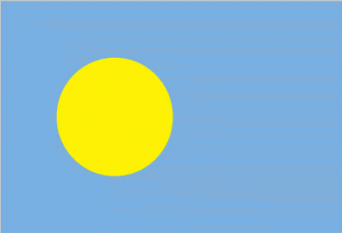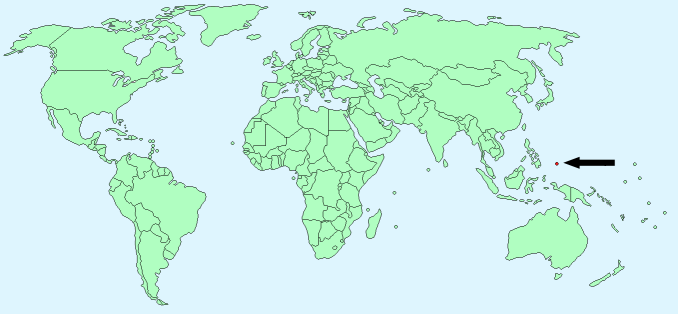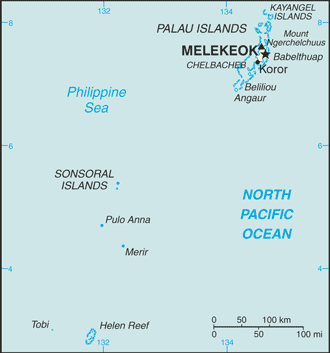Palau


Continent – Australasia, Oceania
Region – Pacific Islands
Size – 181 km²
Geography – coral islands
Language – Palauan (official), English (official), other languages and dialects
Religion – Roman Catholic 49.4%, Protestant 30.9%, Modekngei 8.7%, other 11%
Monetary Unit – United States Dollar
Natural Resources – forests, minerals (especially gold), marine products, deep-seabed minerals
Agriculture – coconuts, copra, cassava (manioc, tapioca), sweet potatoes, fish
Industry – tourism, craft items (from shell, wood, pearls), construction, garment making

Neighbouring Countries – None
Population – 21,265 (2015 estimate)
Population Growth Rate – 0.38%
Average Life Expectancy – 72.87
Capital City – Melekeok (31,000)
Highest Mountain – None
Longest River – None
Climate – tropical – hot all year round 26°C – 32°C
Yearly Rainfall – 350 cm (approx) mostly April to November
Plant Life – mangrove, Taros, sweet potatoes, cassavas, papayas, coconuts, bananas, citrus fruits, upland forest, swamp forest, mangrove forest, atoll forest, casuarina forest, limestone forest, plantation forest, and palm forest
Animal Life – macaque, flying fox, bat, rats, mice
Bird Life – doves, owl, swiftlet, passerines, Micronesian Scrubfowl, Japanese night heron
Marine Life – tropical fish, coral, anemones, sea turtle, dugong, sea cow
Harvard Reference for this page:
Heather Y Wheeler. (2015). Palau. Available: https://www.naturalhistoryonthenet.com/Facts_Figures/Country_Facts/palau.htm. Last accessed Tuesday, July 19, 2016
Facts and Figures Pages
